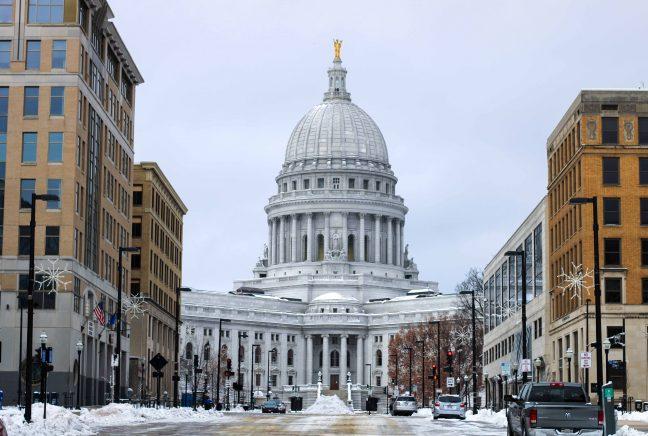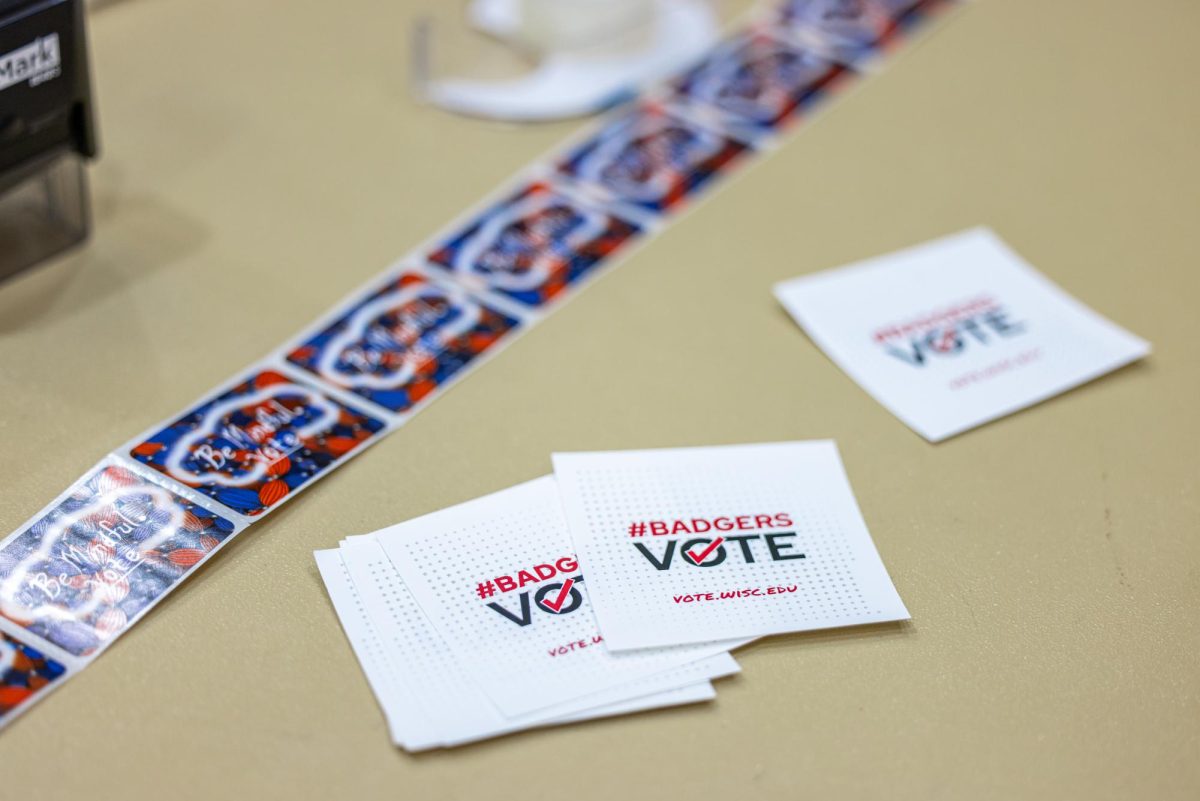On Tuesday, the Wisconsin Senate passed a COVID-19 relief package resulting in an agreement from Gov. Tony Evers to only sign the bill if it’s passed by the Assembly.
This is the first aid package passed since the Republican-controlled legislature passed a COVID-19 relief bill in April. Since then, Evers and the Republican legislature haven’t been able to agree on a second relief bill.
Barry Burden, a professor in the Political Science Department at the University of Wisconsin since 2006, said the current political climate in Wisconsin is in an uncomfortable situation as COVID-19 spreads rapidly across the state.
“Since the pandemic broke, the legislature has not met to pass a bill just until the past couple of weeks since last April,” Burden said. “The governor has tried to play a role by issuing a number of orders, stay at home orders, mask orders, one that would have postponed the April election and almost all of those were challenged and most of them defeated in the courts.”
Burden said leaders in the state legislature filed some of the lawsuits, creating a strange environment in which the executive and legislative branches battled in court rather than through legislation.
Assembly Republicans passed the package 29-2 last week but Senate Republicans removed a number of revisions Evers and other Democrats opposed.
UW will not enact fall pass/fail option despite students’ continuing advocacy
“I’ll just say one thing that’s weird about all of this is the legislature is now passing bills, which is a good thing, but they’re not doing it by actually having hearings, letting people testify and getting expert input,” Burden said. “The bills just show up on the floor of the legislature and they pass them. It’s not a deliberative legislative process.”
Evers issued a statement that indicated he would sign the amended version of the bill to address the ongoing COVID-19 cases in Wisconsin. Assembly Speaker Robin Vos has not declared his stance on the Senate amendments.
Dominique Brossard, Professor and Chair in the Department of Life Sciences Communication and UW said the current political climate created confusion on the federal and local levels.
“What’s really important is to have consistency, transparency and credibility in the messages that are given related to the pandemic to actually make sure people are safe and informed,” Brossard said. “Unfortunately, during the current presidency, there was a number of messages that were sent around and consistency was not the norm.”
Part of the bill allows UW students to fulfill course requirements by doing COVID-19 related volunteer work.
Brossard said she believes this amendment could be a feasible possibility with a coordinated effort, as a number of UW students are currently overseeing and helping with COVID-19 efforts.
“You have a lot of students that are helping with those efforts and even students that did some research to make sure that we are using our expertise for the good of Wisconsin,” Brossard said. “So certainly, it could be rewarding one way or the other for the work they put in. I’m all for it.”
Reserve Board approves sponsorship of COVID-19 Student Relief Fund legislation
Burden said UW System President Tommy Thompson wants to get UW campuses involved in COVID-19 vaccination efforts as the vaccine becomes more readily available, and said Thompson would welcome this aspect of the bill.
Burden said campuses around the state could provide locations to vaccinate large populations of the public, though he does not know if students are the right people to get involved or what role they would play.
“You’ve got to have some training to give people shots. You can imagine in medical students, nursing students, pre-med students, a whole variety of people could be involved in some way, even if they’re not actually giving the vaccines,” Burden said. “There could be a really productive use of students and campuses.”
Burden said he believes legislative leaders and the governor need to communicate with one another — as right now, they go long periods of time without speaking at all — in order to function well.
Brossard said she believes the best way for Wisconsin to move forward with COVID-19 legislation is in a bipartisan fashion which places citizens over ideology.
“We have to work all together to make sure we move forward,” Brossard said. “The students are doing the best they can. The students are suffering from COVID-19 as everybody else so we need to realize it would be hard for everyone.”
Burden said dealing with COVID-19 is the most important task facing Evers and the legislature at the moment.
Vaccine distribution in Wisconsin is behind most other states, especially those in the Midwest, and the state must take bold action to speed up the process, Burden said.
Meredith McGlone, director of News and Media Relations at UW, said the university has not yet taken a position on this legislation.














